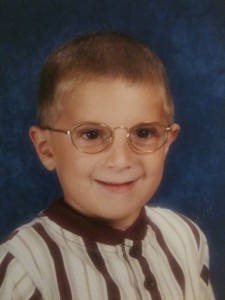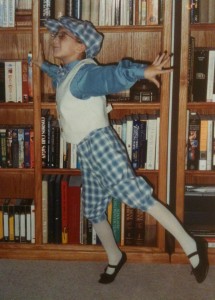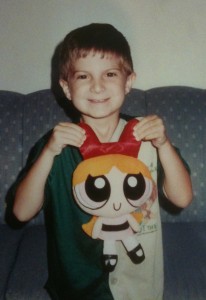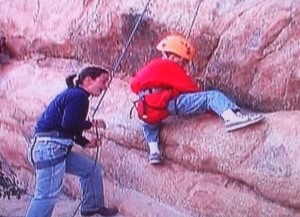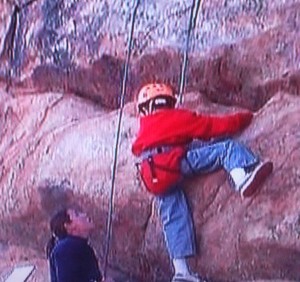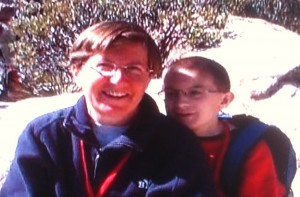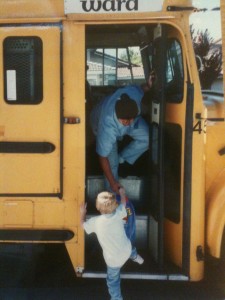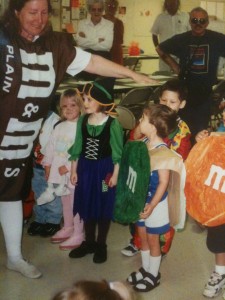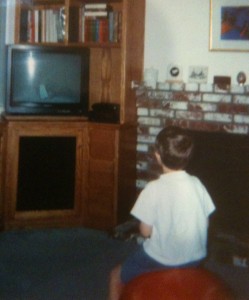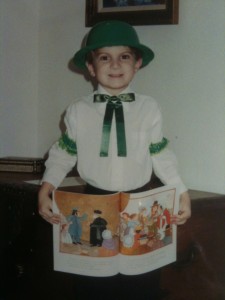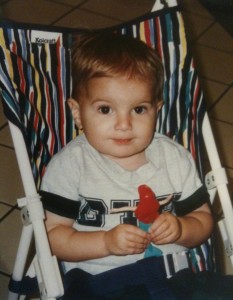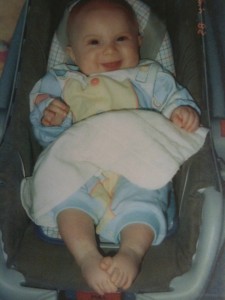Present word count of WIP: 52,346
After all of his testing by school officials, a date was scheduled for Jason’s first IEP (Individualized Education Program). This is a regular meeting (at least annual) at which parents and school officials (teachers, special ed and/or resource specialists, school psychologists, etc.) get together and agree on how best to meet the special ed student’s academic needs within the parameters set by the law and district policies.
I’d read online all kinds of horror stories about these IEPs. Generally, it seemed to be a bargaining process and the student often ended up with the short end of the stick. Fortunately, in our case, I was now slated as President-Elect of the school’s Parent Teacher Organization and I already got on well with the Principal. In fact, Ms. Aklufi set aside time so that she could attend the IEP and make certain Jason got what he needed.
We all agreed that, other than certain speech difficulties (having more to do with understanding idioms than being unable to make certain sounds) and a definite defecit in understanding math, Jason should stay mainstreamed. That is, he would be pulled out of his regular classroom only for math plus a couple of speech therapy sessions a week. Those speech therapy sessions turned into social skills training, as well.
I believe that another reason that first IEP went so well was due to my preparation. In advance, I compiled a report on our son that reviewed the history of his physical, emotional, and social development. In fact, I’ve been using that report to help jog my memory for these postings. Included in that report at the end was a detailed listing of many of his quirks and idiosyncrasies up to that point. In other words, anything that seemed to me to stand out as different from the “norm.” I’ve decided to share that list here over the next several days. I broke it down into six different areas: Senses, Communication, Motor Skills and Movement, Social Interaction, Obsessions/Preoccupations, and Routines.
I’ll begin today with Senses and Communication. (Keep in mind, these were up through his First Grade year. Some of these may have been mentioned already in earlier posts.)
Senses
- Medicine and food that most kids can ingest will make him gag.
- I’m assuming that the reason he won’t even try some of the foods we eat is due to their look and smell. The other night when we were eating chicken from KFC, he complained aloud, “Your food smells!” He’s eating Eggo pancakes now, and a couple of times when the store was out of them and we had to buy the store brand or another brand, he wouldn’t even try them simply because they looked a little different. He won’t try our home cooked pancakes either, probably because they don’t look as evenly cooked as Eggo pancakes.
- When I have forced him to try something new (my only successes have been apple, a baby carrot, and a tiny piece of turkey…I had to really bribe him for those), he takes forever eating the smallest bite, chewing and chewing for more than five minutes.
- He’s extremely ticklish all over his body, but if you tickle too hard he says it feels like scratching.
- He refuses to wear certain clothes because they aren’t soft enough. I have to take the tags out of his clothes and slippers because they bother him.
- He can’t stand getting wet when he’s dressed (we finally got him used to being in a swimming pool). If water or liquid spills on his shirt or pants, he HAS to remove that article of clothing, even if it’s only a small area of wetness. He won’t wait for it to dry. Even in the bathtub, though he’ll let us pour water over his head, he doesn’t seem to like getting his face wet and wants it immediately dried as soon as it’s been washed and rinsed. As a toddler, he cried and cried if we ran carrying him through the sprinklers to have fun in our swimsuits on a hot day. This past year, he finally ran through the sprinklers on his own and seemed to enjoy it. But he has always disliked (and still does) sticky stuff like glue.
- As a toddler, he hated walking or sitting on the grass if it meant bare skin was touching the grass. He also hated walking barefoot on sand. Now he’ll go barefoot on sand (and enjoys playing in it even to the extent of lying down in it and making angels), but still doesn’t like the grass as far as I can tell.
- He has always hated loud noises (like the vacuum cleaner, ceiling fan in the bathroom, hair dryer, etc.) He’ll tolerate the vacuum now but still tries to avoid being in the same room when I’m vacuuming. Much as he loves Disney movies, we’ve rarely been able to get him into a movie theatre because he can’t take the volume of the sound, particularly during the previews.
- When he was younger, he loved staring at a light or at the sun till we broke him of the habit, convincing him it was bad for his eyes.
- At around the age of three, he was fascinated with the dust particles that showed up in the ray of sun coming in through the living room window. He’d stare at them for lengthy periods and even tried playing with them (running through them and turning to look at how they moved in response).
Communication
- He taught himself to read between ages 3 and 4, and is now reading at a 2nd and 3rd grade level, seeming to comprehend much of what he’s reading.
- Despite his high reading level, he still confuses the meaning of some words such as hot and cold, or today and tomorrow and yesterday, or on, or before and after.
- He reads aloud like an adult, with proper inflection and expression.
- He has difficulty responding to general or vague questions such as “What did you do in school today?” or “What did you learn at Saturday Class (Riverside Children’s Theatre)?” His usual response is “I don’t know” or “Never mind.”
- He’s writing well as far as forming the letters and words and constructing sentences. He also doesn’t seem to have difficulty writing answers to questions (unless the question is something like “What is on the hat?” because he doesn’t understand “on”). But he can’t seem to make up his own stories, even if given a topic or idea. He’ll just say, “I don’t know what to write!”
- Any kind of subtle sarcasm goes right over his head. He takes things literally. If he asks me a question and I say, “Wait a second,” he immediately asks the question again. (I don’t know if this applies, but I’ll never forget the night his father and I were trying to convince him to try eating some chicken and he looked at us, deadly serious, and responded, “I don’t eat animals.” He’d had no exposure to vegetarians up to this point, so it was as if it came out of left field…another expression he wouldn’t understand.)
- Often, he will ask me a question, I’ll give him an answer, and then a few minutes later he’ll ask the same question again (sometimes two and three times). For someone with as phenomenal a memory as he has, it’s amazing that he can’t remember what I just told him…so either he needs repetition to remember, or he isn’t paying attention to my answers.
- For the most part, his memory is phenomenal. He’ll see a video once or twice and be able to quote whole sections from it…the same with songs he hears…IF he’s really paying attention. Not only can he quote it verbatim, he mimics the voices and accents. By age 3, he was mirroring everything Julie Andrews was doing, singing and saying in “The Sound of Music.” The same with Mulan in the Disney video. He has no problem repeating any Italian phrase I tell him, complete with accent. His latest such feat in mimicry was doing Mrs. Potato Head and Tour Guide Barbie in “Toy Story 2″…and Linus in “A Charlie Brown Christmas.”
- He’s not watching as many videos lately (spending more time on the computer instead), but out of nowhere at the dinner table or in the car or at the store he’ll say some little snatch of something that may have nothing to do with what we’re doing or talking about. So I’ll ask, “Who says that?” or “What’s that from?” and invariably it’ll be some Disney or cartoon character or a quote from some video or computer game he’s watched or played…and not necessarily recently (he may not have watched that show for over a year or more).
Perhaps the best thing about that first IEP was my husband’s response to it. He finally began to take Jason’s diagnosis seriously, particularly as he saw that school professionals were doing so. He has, since then, become Jason’s strongest champion and supporter.
Tomorrow, I’ll cover Jason’s differences in Motor Skills and Movement, as well as his Social Interaction at age 6.
Originally posted 2012-04-23 20:44:26.

